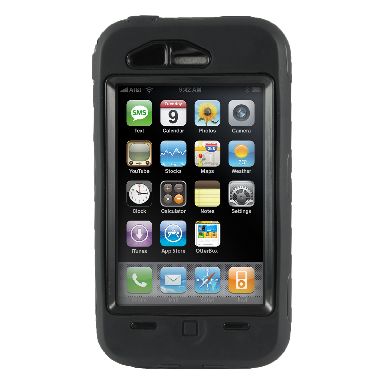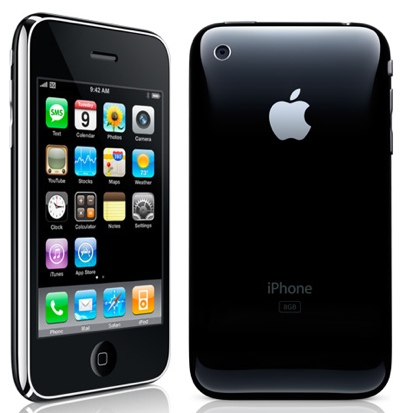Sony is believed to be just one of around 30 companies currently being scrutinised by the ITC, with other notably prominent tech industry names including mobile phone titans Nokia Corp. and Motorola, along with consumer electronics giants Toshiba, LG, Hitachi and Panasonic (Matsushita Electrical).
According to the ITC�s official Web site, the investigation is centred on the allegedly illegal usage of short-wavelength LEDs and lasers commonly found in electronic devices such as mobile phone handsets and high-definition DVD players.
The ITC probe has been launched on the back of a patent violation complaint filed on February 20 of this year by retired Columbia University professor Gertrude Neumark Rothschild, who is demanding that U.S. imports of all patent-infringing products are blocked.
According to Rothschild�s lawyer, Albert Jacobs of Dreier LLP, his client is responsible for making a �seminal breakthrough� in the production of blue, ultraviolet and white light.
Unlike red lasers, blue and ultraviolet laser technology requires less electricity and has subsequently been integrated into everything from computers and HD disc players through to traffic light systems and instrument panels, reports Bloomberg.
The ITC, an official government agency that exists to better protect the U.S. market from unfair trade practice, commented that is �has not yet made any decision on the merits of the case.�It would appear Sony Corp.�s moment of basking in the glory of its recent HD victory is over following news that the U.S. International Trade Commission (ITC) has launched an investigation into possible patent infringements connected to Blu-ray HD hardware and various other related devices.
Sony is believed to be just one of around 30 companies currently being scrutinised by the ITC, with other notably prominent tech industry names including mobile phone titans Nokia Corp. and Motorola, along with consumer electronics giants Toshiba, LG, Hitachi and Panasonic (Matsushita Electrical).
According to the ITC�s official Web site, the investigation is centred on the allegedly illegal usage of short-wavelength LEDs and lasers commonly found in electronic devices such as mobile phone handsets and high-definition DVD players.
The ITC probe has been launched on the back of a patent violation complaint filed on February 20 of this year by retired Columbia University professor Gertrude Neumark Rothschild, who is demanding that U.S. imports of all patent-infringing products are blocked.
According to Rothschild�s lawyer, Albert Jacobs of Dreier LLP, his client is responsible for making a �seminal breakthrough� in the production of blue, ultraviolet and white light.
Unlike red lasers, blue and ultraviolet laser technology requires less electricity and has subsequently been integrated into everything from computers and HD disc players through to traffic light systems and instrument panels, reports Bloomberg.
The ITC, an official government agency that exists to better protect the U.S. market from unfair trade practice, commented that is �has not yet made any decision on the merits of the case.�It would appear Sony Corp.�s moment of basking in the glory of its recent HD victory is over following news that the U.S. International Trade Commission (ITC) has launched an investigation into possible patent infringements connected to Blu-ray HD hardware and various other related devices.
Sony is believed to be just one of around 30 companies currently being scrutinised by the ITC, with other notably prominent tech industry names including mobile phone titans Nokia Corp. and Motorola, along with consumer electronics giants Toshiba, LG, Hitachi and Panasonic (Matsushita Electrical).
According to the ITC�s official Web site, the investigation is centred on the allegedly illegal usage of short-wavelength LEDs and lasers commonly found in electronic devices such as mobile phone handsets and high-definition DVD players.
The ITC probe has been launched on the back of a patent violation complaint filed on February 20 of this year by retired Columbia University professor Gertrude Neumark Rothschild, who is demanding that U.S. imports of all patent-infringing products are blocked.
According to Rothschild�s lawyer, Albert Jacobs of Dreier LLP, his client is responsible for making a �seminal breakthrough� in the production of blue, ultraviolet and white light.
Unlike red lasers, blue and ultraviolet laser technology requires less electricity and has
The ITC, an official government agency that exists to better protect the U.S. market from unfair trade practice, commented that is �has not yet made any decision on the merits of the case.�It would appear Sony Corp.�s moment of basking in the glory of its recent HD victory is over following news that the U.S. International Trade Commission (ITC) has launched an investigation into possible patent infringements connected to Blu-ray HD hardware and various other related devices.
Sony is believed to be just one of around 30 companies currently being scrutinised by the ITC, with other notably prominent tech industry names including mobile phone titans Nokia Corp. and Motorola, along with consumer electronics giants Toshiba, LG, Hitachi and Panasonic (Matsushita Electrical).
According to the ITC�s official Web site, the investigation is centred on the allegedly illegal usage of short-wavelength LEDs and lasers commonly found in electronic devices such as mobile phone handsets and high-definition DVD players.
The ITC probe has been launched on the back of a patent violation complaint filed on February 20 of this year by retired Columbia University professor Gertrude Neumark Rothschild, who is demanding that U.S. imports of all patent-infringing products are blocked.
According to Rothschild�s lawyer, Albert Jacobs of Dreier LLP, his client is responsible for making a �seminal breakthrough� in the production of blue, ultraviolet and white light.
Unlike red lasers, blue and ultraviolet laser technology requires less electricity and has subsequently been integrated into everything from computers and HD disc players through to traffic light systems and instrument panels, reports Bloomberg.
The ITC, an official government agency that exists to better protect the U.S. market from unfair trade practice, commented that is �has not yet made any decision on the merits of the case.�



















